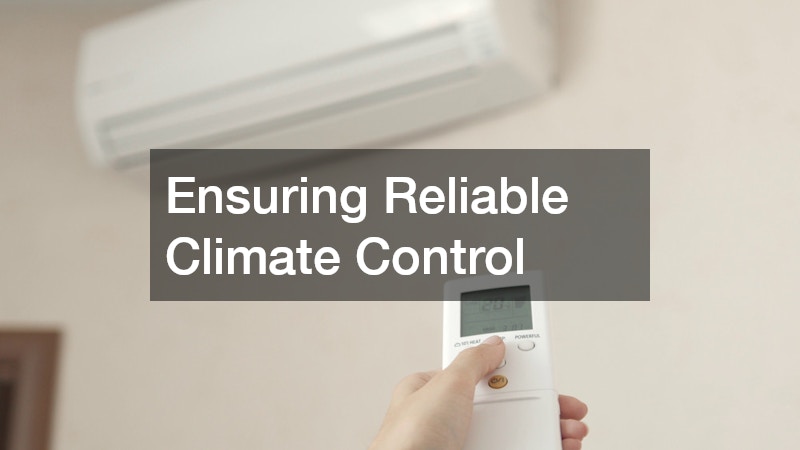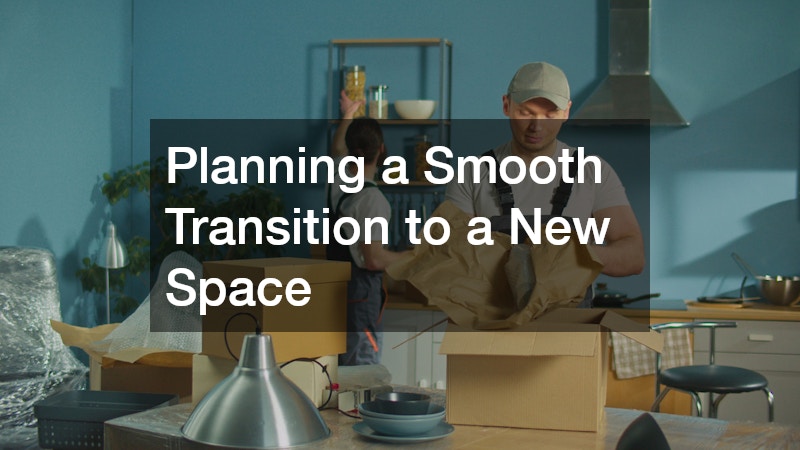In today’s fast-paced world, many people have begun embracing a lifestyle that focuses on simplicity, efficiency, and sustainability, leading to a growing interest in smaller living spaces. While adjusting to a reduced floor plan may feel challenging at first—especially for those used to more expansive homes—the advantages are plentiful. These include lower utility costs, easier upkeep, and improved organization, making this way of living appealing to a wide range of individuals. No matter the square footage, certain factors should be considered to ensure your space functions as a comfortable and welcoming retreat. With thoughtful planning and foresight, even the most modest home can be transformed into a well-designed environment that supports both comfort and daily needs.
Protecting Your Space from the Unexpected
Home insurance is an integral component of responsible homeownership. Regardless of whether you live in a compact home or a sprawling estate, the unexpected can happen at any time. From natural disasters to theft and damage, having a comprehensive home insurance policy can protect your investment and provide peace of mind.
When living in a compact home, it’s crucial to consider the specific risks associated with your location and dwelling type. For instance, if you’re situated in an area prone to flooding, you’ll want to ensure that your home insurance policy covers water damage. Additionally, opting for coverage that includes liability protection can safeguard you against potential lawsuits arising from accidents on your property, particularly in the event of a rental scenario.
Though it might be tempting to skimp on coverage to save money, investing in adequate home insurance can save you significant financial hardship later on. Take the time to assess your risks, speak with your insurance agent, and craft a policy that fits the unique challenges presented by your compact home living. Ultimately, being protective of your space involves being proactive about potential risks and ensuring that you can recover from the unexpected.

Designing for Comfort and Efficiency
Designing your compact home to maximize both comfort and efficiency is key to enjoying your space. One of the fundamental concepts in tiny home design is the seamless integration of functionality and aesthetics. By choosing versatile furniture that serves multiple purposes, you can significantly enhance the usability of a small space while maintaining a welcoming atmosphere.
Incorporating storage solutions that are both practical and stylish can further contribute to overall comfort and efficiency. Built-in shelving, under-bed storage, and multifunctional workspaces can help maintain a clutter-free environment, essential in both tiny homes and compact homes. Remember, less is often more; by consciously selecting the items you bring into your home, you allow for a more relaxing and satisfying living experience.
Finally, the layout of your compact home can play a significant role in how comfortable and efficient it feels. Open floor plans can create a sense of spaciousness, are easy to navigate, and allow natural light to flow through the space, contributing to better mood and wellbeing. Emphasizing simplicity in your design choices will ultimately lead to a more harmonious living environment.
Keeping Temperatures Just Right Year-Round
Comfortable indoor temperatures are essential for year-round living in your compact home. One effective way to regulate temperatures is by utilizing professional residential moving services to assist with your transition into your compact home smoothly. Ensuring that your belongings are well-organized during the move can help set up climate control solutions more efficiently.
Efficient heating and cooling systems are particularly important in compact homes, where excessive energy consumption can quickly lead to higher utility bills. Investing in a quality HVAC system tailored to your compact home is an essential step in maintaining an even and comfortable temperature throughout the year. Additionally, performing routine maintenance, such as replacing filters and cleaning ducts, is crucial in keeping your HVAC system running smoothly and efficiently.
Regularly assessing the insulation in your compact home can further help ensure that temperatures are stable regardless of the weather outside. Proper home insulation can significantly minimize heat loss during winter months and keep your home cool in the summer. It’s advisable to consult home insulation services to evaluate and improve your current insulation to achieve maximum energy efficiency.

Ensuring Reliable Climate Control
Achieving reliable climate control in your compact home requires a strategic approach to HVAC management. Selecting high-quality heating and cooling systems should take precedence to ensure your indoor environment is comfortable. Consider consulting with HVAC repair services to understand the best options for compact homes, ensuring that you make an informed and efficient investment in climate control.
Before installation, it’s beneficial to consider factors like the size of your space and local climate conditions, which can greatly impact your needs. For example, tiny homes in warmer regions may require a different approach to climate control than those in colder areas. By working closely with professionals, you’ll be better equipped to make decisions that positively impact your energy efficiency and comfort.
Don’t forget that regular maintenance is crucial for the reliability of your heating and cooling systems. Investing time and effort into routine check-ups can lead to better performance and a longer lifespan for your equipment. By working with experts to maintain and repair your systems, you’ll be setting yourself up for a comfortable living experience year-round.
Maintaining Smooth Water Flow
In compact homes, efficient plumbing systems are essential to ensure smooth water flow throughout your living space. Having reliable plumbing service is a fundamental aspect of maintaining a well-functioning home, and it is crucial for both convenience and hygiene. Issues such as clogged drains or leaky faucets can quickly impact the efficiency of a compact home.
Regular inspections of plumbing fixtures and systems can help identify potential problems before they escalate. Consider regular check-ups as part of your home maintenance routine—prompt repairs can help extend the life of your plumbing installations. For more complex issues or upgrades, hiring professional plumbing services can ensure that your compact home remains a true oasis.
Moreover, optimizing water usage through eco-friendly fixtures can be a sustainable choice for compact homes. Low-flow faucets, showerheads, and dual-flush toilets can conserve water without sacrificing performance. As you work to maintain smooth water flow, consider incorporating these innovative solutions to enhance water efficiency and manage your resources wisely.
Caring for Essential Waste Systems
Effective waste management is a key concern in any home, but it becomes even more critical in compact living spaces. Ensuring that your septic and sewer line services are in good working order can prevent unwanted backups and odors. Regular maintenance of your septic system can prolong its lifespan and avoid costly emergency repairs.
Understanding the specific requirements for septic systems, particularly in compact homes, can make a significant difference in keeping your space functional. Make sure to consult with waste management professionals who can help assess your needs and develop a maintenance schedule. Additionally, be mindful of what you dispose of in your plumbing to protect your waste systems’ integrity.
In a compact home, simple actions—like properly disposing of waste and even using environmentally friendly cleaning supplies—can go a long way in maintaining both your plumbing systems and the overall health of your home. Explore waste reduction techniques and products that align with your commitment to sustainability. With the right approach, caring for your essential waste systems can be an effortless yet effective aspect of your compact home experience.

Managing Clutter During Big Projects
When undertaking renovations or big projects in your compact home, managing clutter effectively can save you time and stress. One useful strategy is to enlist the help of a local roll off dumpster rental service to ensure that you have the necessary space to dispose of debris and unwanted items. This proactive approach eliminates clutter risks during your projects and helps to keep your workspace organized.
Before starting any work, taking the time to declutter can significantly simplify your renovation efforts. Assess each room in your compact home and remove items that you no longer need or use. Not only will this create a cleaner and more manageable environment for your project, but it can also provide you with a fresh start as you reconfigure your space.
Additionally, be sure to account for any renovations in your planning process. From choosing the right materials to layout adjustments, every choice should reflect your intent to maintain functionality within a smaller space. Clear organization and meticulous attention to detail will ensure your compact home is transformed into an even more inviting space during and after your projects.
Powering Your Home Safely and Efficiently
In a compact home, ensuring the safety and efficiency of your electrical system is vital for day-to-day activities. Hiring a licensed electrical installation service guarantees that all wiring and systems comply with safety standards while also making good use of the available space. Proper electrical planning can optimize energy consumption, which is particularly important in smaller homes.
Consider investing in energy-efficient appliances and smart home technology to further improve the functionality of your compact home. These modern solutions not only reduce energy consumption but can also positively impact your overall quality of life. When upgrading or installing new systems, working with certified professionals is critical to avoid potential hazards and ensure a successful installation.
Regularly checking your electrical system can prevent unexpected outages or surges, which may be particularly disruptive within a smaller living space. Taking the time to inspect outlets, switches, and other components can help design a reliable and energy-efficient electrical system. By prioritizing proper electrical management, your compact home will continue to be a safe and comfortable haven.
Improving Comfort and Energy Efficiency
Finding ways to enhance the comfort and energy efficiency of your compact home can significantly improve your living experience. One cost-effective method is to consider upgrading your windows through a replacement window service, which provides a variety of benefits. New windows can enhance insulation, reduce drafts, and even improve the aesthetic appeal of your home.
Investing in energy-efficient windows can lead to savings on your utility bills while providing enhanced comfort year-round. When selecting replacement windows, look for options with high-performance glazing and energy-efficient frames. A professional service can ensure proper installation for maximum benefits and longevity.
Additionally, incorporating other energy-efficient upgrades can further enhance the overall performance of your compact home. Options like energy-efficient lighting, programmable thermostats, and smart home automation can help create a more comfortable and responsive environment that suits your lifestyle. By remaining proactive in your energy efficiency initiatives, you create an inviting space to live comfortably and sustainably.

Planning a Smooth Transition to a New Space
Transitioning to a new compact home can be an exciting but complex process. Careful planning is essential to ensure a smooth move, particularly if you are making significant life changes. Utilizing residential moving services can alleviate stress, as trained professionals efficiently handle all equipment and belongings, allowing you to focus on settling into your new space.
Before you begin the moving process, creating a detailed plan can guide you through the various stages of the transition. This plan should include assessing your current belongings, scheduling necessary services, and organizing timelines effectively. By being proactive and strategic in your planning, you can minimize disruptions and complications during your move.
Using resources like local roll off dumpster rentals to dispose of unwanted items can further streamline your move. Decluttering before the actual moving day will simplify the process, making it easier to unpack in your new space. Ultimately, a well-executed transition leads to a more enjoyable experience, allowing you to enjoy the unique advantages that a compact home has to offer.
Embracing the unique lifestyle that compact homes and tiny homes offer can lead to a wealth of advantages, from financial savings to the benefits of simplified living. Successful management of your compact home requires foresight, planning, and a commitment to efficiency, whether that’s through implementing effective waste management practices, careful climate control, or efficient resource usage. When you prioritize care for your space—considering aspects like plumbing service, septic and sewer line services, and reliable electrical installations—you set yourself up for a rewarding and stress-free home environment.
A well-designed compact home can evoke feelings of tranquility and comfort, enhancing your quality of life while reducing unnecessary clutter and expenses. Furthermore, investing in professional services and sustainable solutions is key to ensuring your compact dwelling remains a place of comfort and joy. Lastly, as you make each decision towards living compactly, remember that thoughtful choices and regular maintenance will allow you to fully appreciate the many benefits of your beautiful space.





